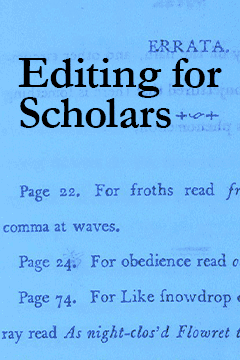Pay-Per-Score: Arne Duncan and Merit Pay
Pay-Per-Score: Arne Duncan and Merit Pay
Susan Harman: Pay-Per-Score
OUR NEW Secretary of Education Arne Duncan (and his president) argues that we need to “incent” teachers with “merit pay” to get them to do better: “I think we cannot do enough to recognize, reward, shine a spotlight on, and yes, incent excellence.” To understand how many things are wrong with this assumption, we need to take it apart.
What does he mean by doing better? He means getting our students to score higher on the tests. But researchers have found that test scores correlate very highly with socio-economic status. Those schools with poor kids and high scores have likely resorted to gamesmanship: They hold kids over in ninth grade, so they don’t lower the all-important tenth grade scores and push out low scorers. They “re-norm” the tests and set new cutoff points so that last year’s failing score is this year’s “proficient” score. They teach to the test by turning the curriculum into “drill-and-kill” test preparation—or simply teach the test itself (otherwise known as cheating).
So why does Duncan call it merit pay then? Is there anything meritorious about relentlessly subjecting kids to test prep? Defining a school’s success or a teacher’s merit by high test scores is not just simplistic but profoundly wrong. A school devoted to test prep is a bad school whereas a school where children and adults delve deeply into a rich, experiential, relevant, and sophisticated curriculum is a good school. The latter may also have high scores but that’s often a function of the socio-economic status of the children who go there since this kind of school tends to be populated by families who do not tolerate a test-prep curriculum.
Let’s instead call merit pay what it is: pay-per-score.
Duncan thinks the reason children score low is that teachers don’t work hard enough at raising the scores. He might actually have some insight here. I don’t know a teacher who thinks the tests provide any instructionally useful data, so why invest the time or energy in prepping students for them? Since teachers hate doing test prep, which is what much of our curriculum has become, perhaps Duncan is right that only money will motivate us to raise scores.
What would actually doing better in schools look like? It would mean building on what the teachers are already doing: designing engaging curriculum, forging relationships with children and their families and neighborhoods, and collaborating with their colleagues. It would take full advantage of the fact that many, if not most, teachers love working with kids. Duncan’s concept of merit pay suggests that he doesn’t know this. Instead, he demands we substitute “drill-and-kill” test prep, which engages no one except the companies that publish the tests and the prep materials (the Big Three are Pearson, Houghton Mifflin, and the Bush family favorites, CTB/McGraw-Hill).
Would we need to be bribed to teach genuine curriculum better? Do our business and political leaders think people go into teaching for the money? Perhaps they haven’t looked at teacher salaries lately. Don’t they know that people go into teaching for the love of the craft and the kids—in other words, because they feel a “calling”? Ask any of us, and I’m betting not one will say, “Ever since I was little I loved playing school and handing out bubble answer sheets to the other kids and making them fill them in.”
If the federal government imposes a pay incentive based on test scores, who would want to teach poor kids since it’s clear that they often score low on tests. Now, I know I just said that teachers don’t do it for the money, and we all know that many of us are committed to working with poor kids. Nevertheless, to know up front that you will be paid less than those up the hill working with the rich kids—that could “dis-incent” some teachers. Plus the fact that middle-class parents substantially subsidize the “frills,” which have been driven out of the generic school day by the pressure to raise test scores, means that the hills schools have art, music, libraries, foreign languages, P.E., science, trips, and recess. The flatlands schools—without these parental inputs—suffer from “drill-and-kill” phonics and arithmetic. Regardless of one’s commitment to the poor, who would want to administer scripted texts as opposed to teaching genuine curriculum?
But perhaps the Broads, Gateses, and Business Roundtable folks who are running education in this country don’t love what they do. Perhaps they do, indeed, need to be “incented” with money to do what they do. Perhaps misery loves company. I feel sorry for them and would urge them to spend some time with a good teacher in a school that has escaped the drill-and-kill curricula these same businessmen have imposed on the rest of us. Perhaps a visit to the Sidwell Friends School, in Washington, D.C., where Malia and Sasha go, would change Duncan’s perspective on what’s valuable to learn—and what motivates teachers to teach it. It certainly ain’t pay-per-score.
Susan Harman is a semi-retired principal, teacher, psychologist, and writer, and the Coordinator of CalCARE, the California Resistance to the standards and testing madness.




